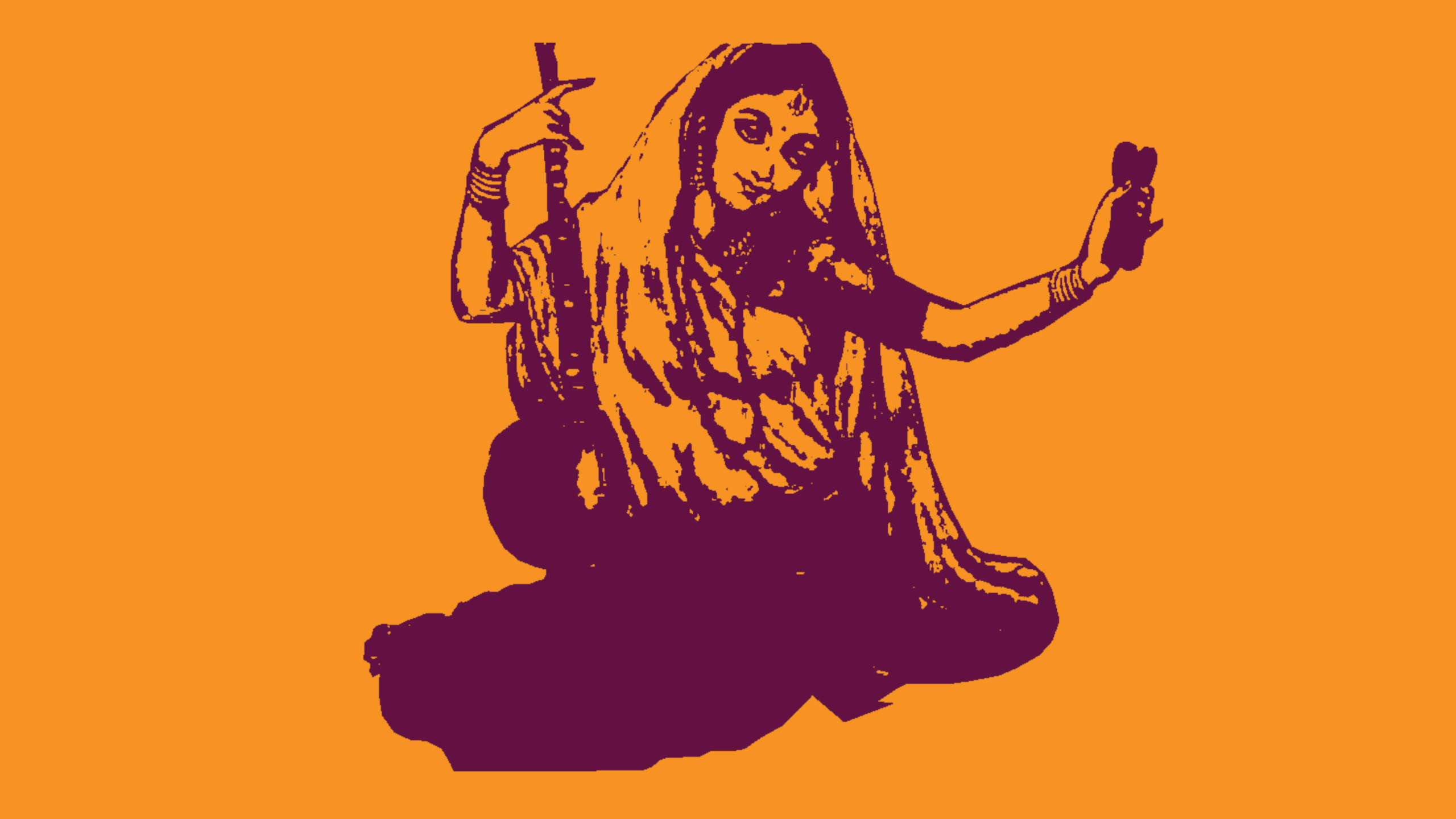Meerabai was an Indian saint-poetess who composed numerous beautiful bhajans and dohas about Lord Krishna. She was one of the most prominent figures of the Bhakti Movement in India.
By Sreejit Datta, Assistant Professor, Director of Civilisational Studies Practice & Resident Mentor at Rashtram.
Meera – the medieval Indian saint-poetess to whom the composition of a numberless beautiful bhajans and dohas about Lord Krishna is attributed, was one of the most prominent figures of the Bhakti Movement in India. The story of her life is wondrous. It is a miraculous tale about the power of devotion and the personal relationship between the devotee and the divine within. A sage, a philosopher, a composer of extraordinary verses and songs, and a mystic – Meerabai is believed to have lived during the 16th century. Hers was an extraordinary life, full of magnanimity and spiritual exuberance. The immortal bhajans of Meera, sung every day by countless devotees through the centuries, are luminous poetic-musical renditions of her spiritually revelatory and quite astonishing phenomenalistic experiences.
The saintess was born in a royal family in Rajasthan. A Rajput woman of regal stature, she was regarded no less than a queen. When she attained the age of marriage, Meera was given away to the crown prince of Mewar. However, in her heart, Meera considered herself wedded only to the deity of her life – Lord Sri Krishna. After Bhoj Raj, the King of Mewar and husband of Meera Bai lost his life in battle, Meera broke with the conventions of widowhood and continued with her spiritual pursuits in her own way. Her Bhakti was not interpreted kindly by the erstwhile society and legend has it that several attempts at murdering Meera had been executed by her in-laws and others throughout her life, but all such attempts were miraculously averted by the Lord’s supreme grace towards His beloved devotee. Several of Meera’s bhajans speak of these singularly confounding events like that of her in-laws sending her a cup of poison or the time when they had sent her a poisonous snake in a basket of flowers but no harm could touch her for she was protected none other than the Lord Sri Krishna himself.
Her bhajans are restless reminders of the transcendental quality of supreme devotion. Meera sings – “I’ve become a servant of my Narayana/ The king sent a goblet of poison as a gift./ Meera drank it all in one gulp, and laughed. Tying anklets to her feet, in abandon, Meera danced …”. The all-pervading faith in Narayana felt by her was verily death-defying. The engulfment and subdual of her earthly senses in supreme devotion is characteristic of the typical trance-like state of Samadhi that is recognized and extolled in every tradition of Bhakti. Meera sings of the society perceiving her as a soul crazed, but care she does not, for what is sanity in the kingdom of Girdhara Narayana – the bearer of mountains?
The prayerful songs of Meera, in which she almost always imagines Krishna as her beloved and swami – i.e. husband and lord, metaphorically talks about the longing of the jivatman or the individual soul for its sublimation into the Universal – the Brahman. The intense pleadings and prayers of Meera have thus been ringing through the centuries and forever:
“Do not leave me, a helpless woman.
My strength, my crown!
I am empty of virtues,
You, the ocean of them,
My heart’s music, you help me
In my world-crossing, you help me…”

